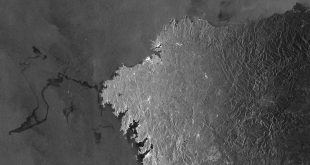The original version of this article (in French) was published in the quarterly newsletter no. 20 (March 2021) of the Values and Policies of Personal Information (VP-IP) Chair. On 25 November 2020, the European Commission published its proposal for the European data governance regulation, the Data Governance Act (DGA) which aims to “unlock the economic and societal potential of data and technologies like artificial intelligence “. The …
Read More »Search Results for: surveillance
IMPETUS: towards improved urban safety and security
How can traffic and public transport be managed more effectively in a city, while controlling pollution, ensuring the safety of users and at the same time, taking into account ethical issues related to the use of data and mechanisms to ensure its protection? This is the challenge facing IMPETUS, a €9.3 million project receiving funding of €7.9 million from the …
Read More »Facial recognition: what legal protection exists?
Over the past decade, the use of facial recognition has developed rapidly for both security and convenience purposes. This biometrics-based technology is used for everything from video surveillance to border controls and unlocking digital devices. This type of data is highly sensitive and is subject to specific legal framework. Claire Levallois-Barth, a legal researcher at Télécom Paris and coordinator of …
Read More »The Alicem app: a controversial digital authentication system
Laura Draetta, Télécom Paris – Institut Mines-Télécom and Valérie Fernandez, Télécom Paris – Institut Mines-Télécom Some digital innovations, although considered to be of general interest, are met with distrust. A responsible innovation approach could anticipate and prevent such confidence issues. “Alicem” is a case in point. Alicem is a smartphone app developed by the State to offer the French people …
Read More »When AI keeps an ear on nursing home residents
The OSO-AI start-up has recently completed a €4 million funding round. Its artificial intelligence solution that can detect incidents such as falls or cries for help has convinced investors, along with a number of nursing homes in which it has been installed. This technology was developed in part through the work of Claude Berrou, a researcher at IMT Atlantique, and …
Read More »The worrying trajectory of energy consumption by digital technology
Fabrice Flipo, Institut Mines-Télécom Business School In November, the General Council for the Economy, Industry, Energy and Technology (CGEIET) published a report on the energy consumption of digital technology in France. The study draws up an inventory of equipment and lists consumption, making an estimate of the total volume. The results are rather reassuring, at first glance. Compared to 2008, this new …
Read More »Marine oil pollution detected from space
Whether it is due to oil spills or cleaning out of tanks at sea, radar satellites can detect any oil slick on the ocean’s surface. Over 15 years ago, René Garello and his team from IMT Atlantique worked on the first proof of concept for this idea to monitor oil pollution from space. Today, they are continuing to work on …
Read More »The ethical challenges of digital identity
Article written in partnership with The Conversation. By Armen Khatchatourov and Pierre-Antoine Chardel, Institut Mines-Télécom Business School The GDPR recently came into effect, confirming Europe’s role as an example in personal data protection. However, we must not let it dissuade us from examining issues of identity, which have been redefined in this digital era. This means thinking critically about major ethical and philosophical issues that …
Read More »MAGIC: the wonders of infrared camouflage
The MAGIC project aims to develop a camouflage technique against infrared cameras. Mines Saint-Etienne is using its expertise in the optical properties of materials to achieve the project’s objective. Funded by the DGA and supported by the ANR, MAGIC primarily focusses on military applications. Jenny Faucheu, a researcher on the project at Mines Saint-Étienne, explains the scientific approach used. Infrared …
Read More »Restricting algorithms to limit their powers of discrimination
From music suggestions to help with medical diagnoses, population surveillance, university selection and professional recruitment, algorithms are everywhere, and transform our everyday lives. Sometimes, they lead us astray. At fault are the statistical, economic and cognitive biases inherent to the very nature of the current algorithms, which are supplied with massive data that may be incomplete or incorrect. However, there …
Read More » I'MTech L'actualité scientifique et technologique de l'IMT
I'MTech L'actualité scientifique et technologique de l'IMT









